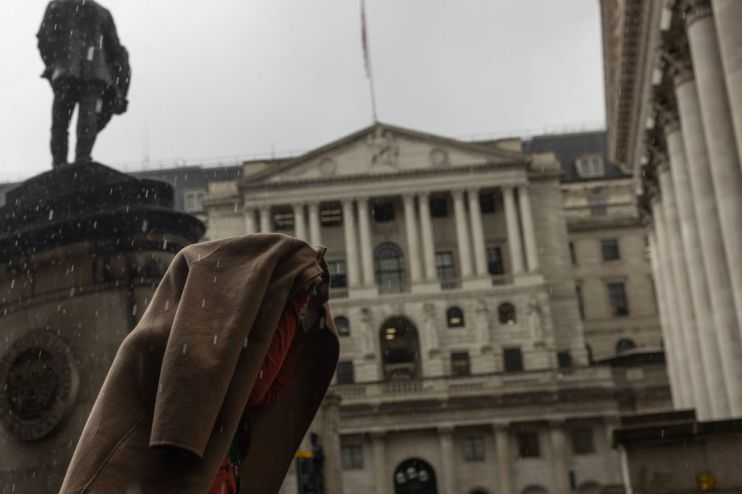FTSE 100 close: Bank of England rate fears after inflation overshoot send house builders tumbling

London’s FTSE 100 tanked today amid a sell off in companies that are poised to come under pressure from the Bank of England continuing to hike interest rates to tame inflation.
The capital’s premier index slid 1.75 per cent to 7,615.22 points, while the domestically-focused mid-cap FTSE 250 index, which is more aligned with the health of the UK economy, collapsed 1.44 per cent to 18,931.16 points.
Traders stepped up their bets on how high Bank Governor Andrew Bailey and the rest of the monetary policy committee will raise interest rates after new inflation numbers smashed forecasts.
The rate of price increases slipped to its lowest level in a year and out of the double digits for the first time since last summer, down to 8.7 per cent from 10.1 per cent.
However, that was far above the City’s estimate of a drop to 8.2 per cent and the Bank’s projection to 8.4 per cent.
Those upside shocks prompted markets to raise the chances of the Bank sending borrowing costs to a peak of 5.5 per cent, which would be their highest level since December 2007.
Stocks that are sensitive to interest rate changes dragged the FTSE 100 sharply lower today.
Housebuilders tumbled on fears over whether demand for property can hold up after yet more interest rate increases.
Persimmon shed 5.52 per cent, Taylor Wimpey lost 4.55 per cent, Berkeley fell 4.28 per cent and Barratt Developments dropped 3.56 per cent.
Michael Hewson, chief market at CMC Markets UK, said “Housebuilders have been hammered on the back of today’s hotter than expected inflation numbers for April. The sharp rise in core CPI has prompted markets to project the prospect of another 100bps of rate rises from the Bank of England, sending gilt yields to their highest levels since October last year.”
The pound initially gained ground on the US dollar on higher rate expectations, but then dropped sharply by around 0.35 per cent.
Gilt yields soared, with the rate on the 2-year government bond up as much as 35 basis points. Yields and prices move inversely.
Oil prices climbed substantially, up nearly two per cent.